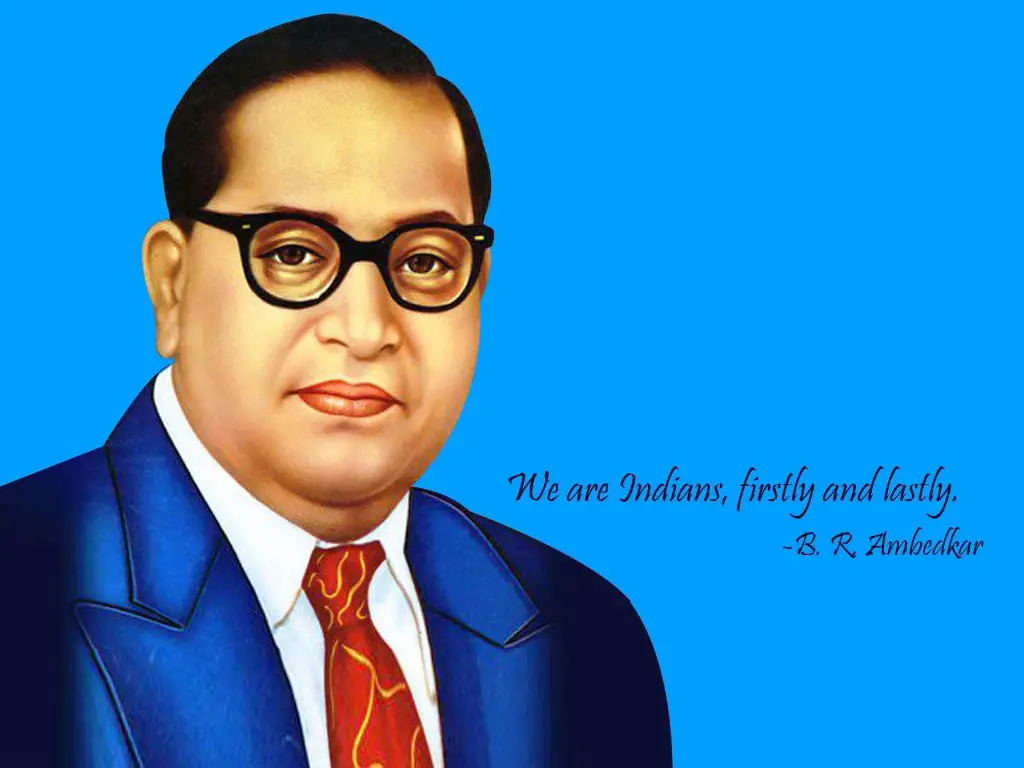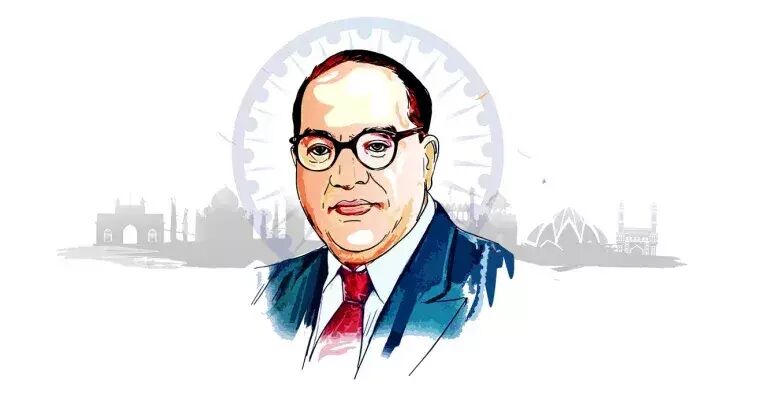B.R Ambedkar jayanti is observed on April 14. He was known as Babasaheb. He chaired the drafting committee of the Constituent Assembly. He was India’s first Minister of Law and Justice. Read more about his early life, education, political career, the Poona Pact, books written by him, and more.
Dr. Bhimrao Ramji Ambedkar, also known as Babasaheb Ambedkar, was a social reformer, jurist, and politician who played a crucial role in the upliftment of the marginalized sections of society in India. Born on April 14, 1891, in Mhow, Madhya Pradesh, Dr. Ambedkar faced numerous struggles in his life, which shaped his thinking and ideologies.
Struggle throughout life and His Victory
Ambedkar’s childhood was marked by discrimination and oppression due to his caste. He belonged to the Mahar caste, considered an untouchable community in India. Despite facing discrimination, Ambedkar excelled in academics and secured scholarships to study at universities in India and abroad.
Throughout his life, Ambedkar fought against the caste system and advocated for the rights of the oppressed. He founded the Bahishkrit Hitkarini Sabha in 1924, which aimed to uplift the socially and economically backward classes. He also established the Independent Labour Party in 1936 to represent the interests of the working class.
One of the most significant struggles that Ambedkar faced was in his fight for the inclusion of Dalits in the Hindu community. In 1935, he publicly denounced Hinduism and converted to Buddhism, along with thousands of his followers. This event came to be known as the “Mass Conversion to Buddhism.”
भीमराव अंबेडकर को किसने पढ़ाया था
Ambedkar was also the principal architect of the Indian Constitution and played a vital role in drafting it. He fought for the inclusion of fundamental rights and safeguards for the oppressed and marginalized sections of society. His contributions to the Constitution helped establish India as a democratic republic with equal rights for all citizens.
Despite facing numerous struggles throughout his life, Ambedkar’s contributions to Indian society cannot be overstated. He fought tirelessly for the rights of the oppressed, worked toward the upliftment of marginalized communities, and helped shape the modern Indian state.
Ambedkar Jayanti: Today marks the 131st birth anniversary
Dr. Ambedkar’s legacy continues to inspire millions of people in India and across the world. He is remembered as a social reformer, jurist, and politician who dedicated his life to fighting against oppression and injustice. His work and ideologies continue to shape modern Indian society and serve as a reminder of the importance of equality, justice, and social inclusion.
At the time of his death on December 6, 1956, Dr. Ambedkar’s net worth was estimated to be around INR 60,000. However, his contributions to Indian society far surpass any monetary value. His teachings and principles continue to inspire generations of people to fight against discrimination and oppression and strive toward a more just and equitable society.
Biography of Hon. Dr. B R Ambedkar
Born on April 14, 1891, in Mhow, a small cantonment town in Madhya Pradesh, India, Bhimrao Ramji Ambedkar was the 14th and last child of his parents. Despite being from a Dalit family, which was considered to be at the bottom of the caste hierarchy in India, he went on to become a distinguished scholar, economist, and jurist. Dr. Ambedkar was the first Dalit to obtain a doctorate in economics from the University of London, and he also earned law degrees from Columbia University and the University of Mumbai.
Dr. Ambedkar played a significant role in the Indian independence movement and was the chief architect of the Indian Constitution, which was adopted on November 26, 1949. He was appointed as the first Law Minister of Independent India and served in the position until 1951. Throughout his life, Dr. Ambedkar fought for the rights of the Dalits, women, and other marginalized groups in Indian society.
Children of Hon. Dr. B R Ambedkar
Dr. Ambedkar married twice and had five children – two sons and three daughters. His first wife, Ramabai, passed away in 1935, and he later married Savita Ambedkar in 1948. His eldest son, Yashwant Ambedkar, was a successful businessman, while his younger son, Rajratna Ambedkar, worked as a government officer. His daughters, Dr. Shantabai Danait, Dr. Urmila Pawar, and Dr. Bharti Meshram, are all accomplished professionals in their respective fields.
Net Worth of Hon. Dr. B R Ambedkar
Dr. Ambedkar’s net worth is challenging to determine as he lived during a time when records were not accurately maintained. However, it is widely believed that he donated most of his wealth to social causes and did not accumulate personal wealth. He firmly believed in using his resources to bring about social change and uplift the lives of the marginalized sections of society. Even after his death in 1956, his legacy continues to inspire people worldwide.
डॉक्टर भीमराव अंबेडकर के पास कितनी डिग्री थी
In conclusion, Hon. Dr. B R Ambedkar’s life, children, and net worth are a testament to his remarkable journey as a social reformer and an advocate of human rights. Despite facing discrimination and societal barriers, he never gave up and worked tirelessly to create a more equitable and just society. His contributions to Indian society and his dedication to social justice continue to inspire generations of people across the world.
Awards and Appreciations – India and Abroad
Dr. B.R. Ambedkar received several awards and honors in his lifetime. Some of them are:
- Bharat Ratna – India’s highest civilian award, in 1990, posthumously.
- Columbia University awarded him a Doctorate of Science degree in 1952.
- Honorary LLD degree from Osmania University, Hyderabad, in 1953.
- The Bodhisattva of Freedom Award by the Republic of Korea in 1955.
- The Lenin Peace Prize by the Soviet Union in 1956.
- The honorary degree of Doctor of Laws from Nagpur University in 1956.
- The honorary degree of Doctor of Civil Law from the University of Bombay in 1956.
Also, visit:






